RAISE E-News, Vol. 3, No. 5
SEPTEMBER 2017
|

Welcome to the RAISE e-news letter, designed to identify and share resources that the Rehabilitation Services Administration Parent Training and Information Centers (RSA-PTI) can use and share with families.
Executive Editor: Peg Kinsell
Visit our Website:
|
About RAISE
RAISE, the National Resources for Access, Independence, Self-Advocacy and Employment is a user-centered technical assistance center that understands the needs and assets of the RSA-PTIs, coordinates efforts with the TA provided by PTI centers and involves RSA-PTIs as key advisors and partners in all product and service development and delivery.
RAISE is funded by the US Department of Education to provide technical assistance to, and coordination of, the 7 PTI centers (RSA-PTIs). It represents collaboration between the nation's two Parent Technical Assistance Centers (PTAC) and the seven Regional PTACs.
Find your Parent Technical Assistance Center (PTAC)
|
|
 |
College
This month, as we head back to school, we focus on those who are college-bound, and those who hope to be.
"Do not be afraid to ask for help. Nobody gets through college on their own."
- Michelle Obama, former First Lady
|
Christine Getman
Christine Getman may be soft spoken and have a ready smile to share, but her words about self-advocacy pack a punch. She offers great advice to students with disabilities as they transition to college.
"When I transitioned to college, it was all me. In college YOU need to figure out what you need..."
|
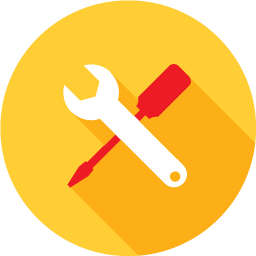
TOOLS THAT WORK:
The Transition Coalition has produced a number of tools and training programs to help transition coordination by assessing students' readiness for college and careers. We especially like this 6 page self-assessment tool, developed by Landmark College.
|
DREAM 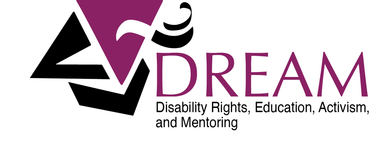
DREAM - Disability Rights, Education, Activism and Mentoring is a national organization for and by college students with disabilities. DREAM is open to higher education students of all types, including graduate students, part-time students, and those who are auditing higher education courses. It is open to students of all ages with any kind of disability, culturally Deaf students, and nondisabled students who are our allies and peers. DREAM explicitly includes people who have traditionally been marginalized or under-represented in the disability or higher education communities.
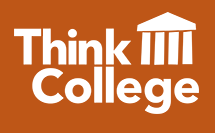 Think College
Think College
Think College is a national organization dedicated to developing, expanding, and improving inclusive higher education options for people with intellectual disability. We love the new user-friendly interface and easy search features at Think College. They have an extensive resource library, list of upcoming events and a state-by-state link so you can see what is happening in YOUR state.
Want to get involved? Think College has a "Strategic Capacity Building" network, with projects in Oklahoma, Missouri, Oregon, Michigan and Maryland. AND... there are funds for other states to get involved.
Want to learn how to support families and students? Check out their FREE online learning portal, with modules on topics such as "Coaching and Mentoring," "Transition," and "Accessing Disability Services," to name a few.
Is College Right for Me? Three Great Videos to Share
This YouTube resource, produced by the University of North Carolina, is a video that RAISE partners and transition advocates can share with students who may think college is not an option.
We like this video produced by the Vanderbilt Kennedy Center for you to share with students who might want to explore the option of college.
This video, produced by the DOIT Center and the University of Washington, with audio description, uses student interviews and personal perspectives from students with "invisible disabilities" such as dyslexia and other learning disabilities, psychiatric disabilities, Asperger's syndrome, ADHD, brain injury, seizure disorders and Tourette syndrome.
|
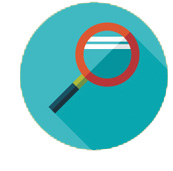 A CLOSER LOOK: A CLOSER LOOK:
The Rights of Students with Disabilities in Higher Education
Students with disabilities cannot be denied admission to college on the basis of disability, but like all applicants, a student with a disability must meet the essential requirements for admission.
Once in college, students do not have to disclose their disability, unless they want accommodations, and academic adjustments are determined on an individual basis.
We turned to the Office of Civil Rights for more information about the rights of students with disabilities in higher education for this Q&A:
Q: As a student with a disability leaving high school and entering postsecondary education, will I see differences in my rights and how they are addressed?
A: Yes. Section 504 and Title II protect elementary, secondary, and postsecondary students from discrimination. Nevertheless, several of the requirements that apply through high school are different from the requirements that apply beyond high school. For instance, Section 504 requires a school district to provide a free appropriate public education (FAPE) to each child with a disability in the district's jurisdiction. Whatever the disability, a school district must identify an individual's educational needs and provide any regular or special education and related aids and services necessary to meet those needs while also meeting the needs of students without disabilities.
Unlike your high school, however, your postsecondary school is not required to provide FAPE. Rather, your postsecondary school is required to provide appropriate academic adjustments as necessary to ensure that it does not discriminate on the basis of disability. In addition, if your postsecondary school provides housing to nondisabled students, it must provide comparable, convenient, and accessible housing to students with disabilities at the same cost.
Other important differences that you need to know, even before you arrive at your postsecondary school, are addressed in the remaining questions.
Q: If I want an academic adjustment, what must I do?
A: You must inform the school that you have a disability and need an academic adjustment. Unlike your school district, your postsecondary school is not required to identify you as having a disability or to assess your needs.
Your postsecondary school may require you to follow reasonable procedures to request an academic adjustment. You are responsible for knowing and following those procedures. In their publications providing general information, postsecondary schools usually include information on the procedures and contacts for requesting an academic adjustment. Such publications include recruitment materials, catalogs, and student handbooks, and are often available on school websites. Many schools also have staff whose purpose is to assist students with disabilities. If you are unable to locate the procedures, ask a school official, such as an admissions officer or counselor.
Q: May a postsecondary school charge me for providing an academic adjustment?
A: No. Nor may it charge students with disabilities more for participating in its programs or activities than it charges students who do not have disabilities.
|
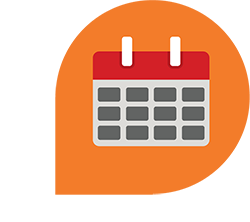 Upcoming Events Upcoming Events
RAISE Center Summit
September 17-19, 2017 in Rutherford NJ.
Please join us for professional development, networking, and sharing as we work together to improve transition outcomes for young adults with disabilities.
Learn More >>
From Sheltered Workshops to Community Employment, hosted by Vermont APSE. October 10-11, 2017 in Burlington Vermont
Learn More >>
Transition from School to Adult Life, sponsored by The Arc of Massachusetts November 4, 2017
National Federation of Families for Children's Mental Health
|
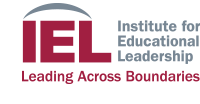 PARTNER PROFILE: PARTNER PROFILE:
Institute for Educational Leadership (IEL)
This month, we feature RAISE Partner Institute for Educational Leadership (IEL): The Center for Workforce Development at the Institute for Educational Leadership is a non-profit based in Washington D.C. that has worked to achieve better results for children and youth, and managers the National Collaborative on Workforce and Disability for Youth.
|
|